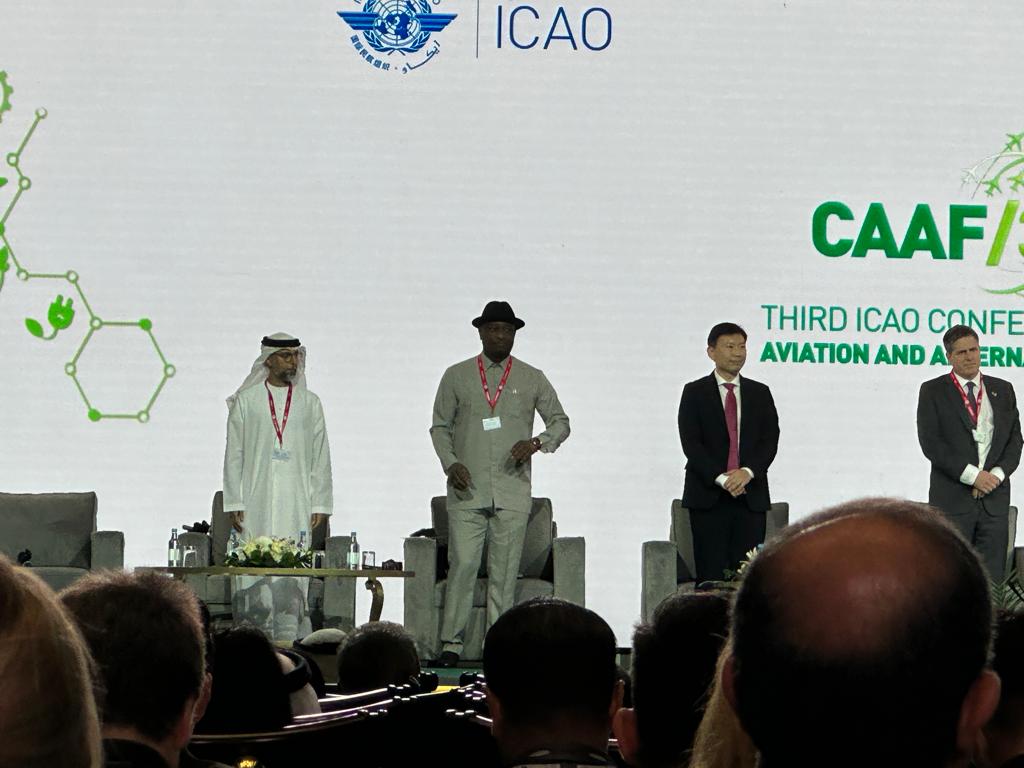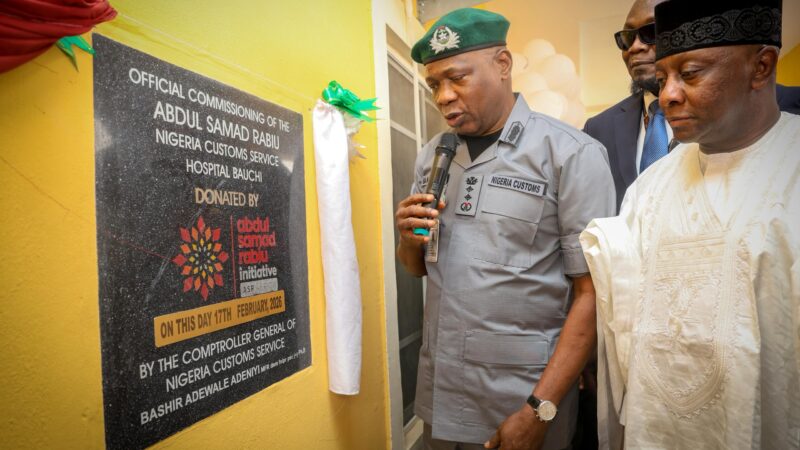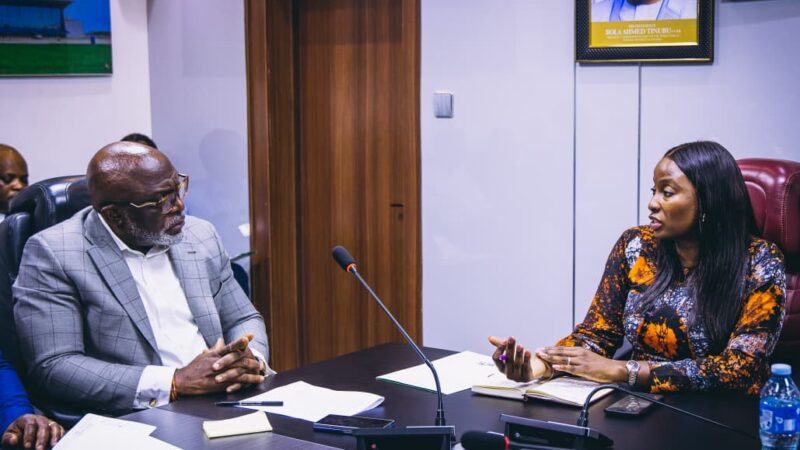Keyamo calls for harmonised production, deployment of Sustainable Aviation Fuels

Nigeria’s Minister for Aviation and Aerospace Development, Festus Keyamo has called on stakeholders in the global aviation industry to harmonize the development, production and deployment of the proposed Sustainable Aviation Fuels (SAF).
Keyamo, who made this call at the ongoing Third ICAO Conference on Aviation and Sustainable Alternative Fuels, reminded the organizers of the submissions at the 41st ICAO Assembly where the global aviation stakeholders resolved to working together to strive to achieve a collective long-term global aspirational goal for international aviation (LTAG) of net-zero carbon emissions by 2050.
“As we gather here in CAAF 3 to review and update the 2050 ICAO Vision for SAF, including LCAF and other cleaner energy for aviation, in order to define a global framework, I wish to highlight that no particular region should be left behind in developing, producing and deploying SAF/LCAF and other cleaner energy for aviation. Cost and affordability are central issues to implement policies in support of this vision,” said Keyamo.
He noted that the price differential of SAF/LCAF is higher compared to conventional jet fuels today, adding that the global framework must address availability, reliability and affordability of SAF/LCAF and its cost impacts on air fares.
He said: “Any potential targets or any amount of SAF/LCAF and other cleaner energy for aviation to replace conventional fuels should be a global target without attribution or commitment of individual State targets.
“The global framework must be supported by a robust and targeted institutional strengthening and capacity building, technology transfers and access to new and financing to all States especially to developing countries in line with No Country Left Behind.
“In particular for financing, the global framework must ensure simple, clear and easily accessible financing or funding (both public and private) for the development, production and deployment of SAF/LCAF.”
The Minister also informed the global audience of the continent’s future plan for the aviation sector which, according to him, is tailored around global trends aimed at tackling climate change.
“Central to this growth and development is our realization that environmental sustainability and tackling climate change will contribute to the sustainable development of air transport especially in Africa.
“It is for this reason that the African Union under Agenda 2063 has identified the Single African Air Transport Market (SAATM) as one of the flagship projects to transform the aviation industry in Africa, promote socio-economic development and integration of Africa,” said Keyamo.
Speaking further, Keyamo also told the audience about the importance of Aviation to the African economy, “Africa is home to over 1 billion people with a vast landmass that requires a robust aviation system to move people and goods around.
“Aviation supports socio-economic development and integration of Africa and, as such, we have committed to ensuring the growth and development of African Aviation in the same way as other regions of the world.
“As part of the African efforts to address this resolution, the African member States working through AFCAC have taken the initiative to accelerate the development, production and deployment of SAF, LCAF and other cleaner energy sources for aviation.”
According to him, the initiative focuses on four key pillars; first is the fevelopment and harmonization of policies in Africa to promote SAF/LCAF development, production and deployment in African States, attracting appropriate technology and financing to enable building of SAF/LCAF production facilities in African States.
Second pillar is the coordination of Institutional, Human and Technical Capacity enhancement in African States and Regional Economic Communities (RECs) to support implementation of SAF/LCAF initiatives in Africa including building of SAF/LCAF producing facilities in African States.
Third pillar is to conduct technical feasibility studies/assessments on the potential of SAF/LCAF as a basis for public and private investment in SAF/LCAF production in Africa.
Fourth and last of the pillars is resource mobilization and lobbying through the African Union, it’s development partners as well as all other available funding sources to provide funding for building of SAF/LCAF production projects in African States.
In his speech, Keyamo also recognised that member States of the Aviation Stakeholders had adopted Resolution A41-21 which recognises that the
LTAG is a collective global goal, and does not attribute specific obligations to individual States, or takes into account special circumstances and respective capabilities of States.
In particular, developing countries; maturity of aviation markets, the sustainable
growth of the international aviation industry and that emissions may increase due to the expected growth in international air traffic until lower emitting technologies and fuels and other mitigating measures are developed and deployed.
In his conclusion, Keyamo reiterated that the Assembly Resolution A41-21 recognizes that means of implementation commensurate with the level of ambition and financing will promote the achievement of the LTAG.
“Africa is ready to play its part. I call upon the States with the necessary technologies for developing and producing SAF/LCAF and other cleaner energy for aviation to work with the developing countries especially in Africa to transfer such technologies to produce SAF/LCAF in Africa so that there is global availability of SAF/LCAF,” he said.
On a final note, the Minister called on ICAO to continuously partner with all regional organizations to address the challenge of institutional strengthening and capacity enhancement of expertise in all regions.







